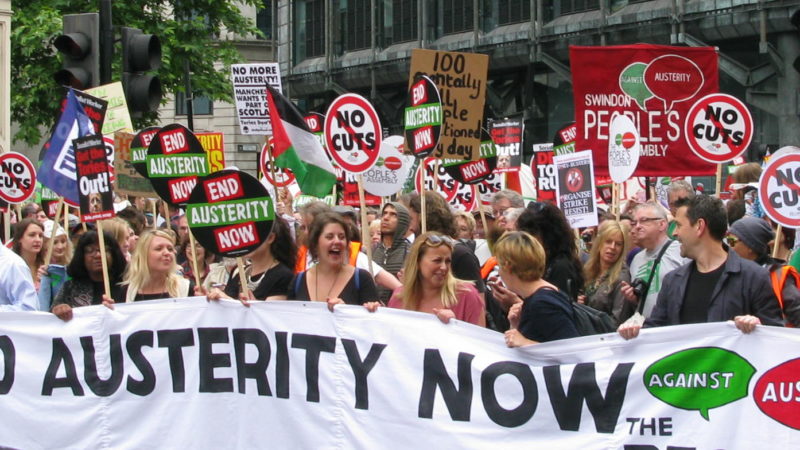Until last week, it was barely on the agenda. But Labour’s move last week, forcing a vote on ending the public sector pay cap, has already changed the debate.

Until last week, it was barely on the agenda. But Labour’s move last week, forcing a vote on ending the public sector pay cap, has already changed the debate.
Public sector workers have faced seven years of real-terms pay cuts. All the while demand on their time is rising. Most of us know someone in the NHS or education and the stress they are under. Morale has collapsed, and they are stretched beyond breaking point.
The anger has been bubbling away – but it hasn’t broken through. Until now.
Today, the Telegraph leads on cabinet calls for the PM to go. That is a direct response to the labour movement’s invigoration following the General Election. There is a feeling that the door is ajar now, with a government at war with itself.
That desire for change, for an end to running down our public services, is finally trickling out beyond union circles.
Of course, the government have already recognised that austerity has failed – time and again they’ve had to push back their promise to ‘balance the books’ – from 2015, and now at best to 2025.
Stripping back funding for local communities, for long-term investment, for social services, transport – all of this has dampened our prospects as a country. But the key change is that now it has stirred both public and internal Conservative anger.
76% of voters now want an end to the public sector pay freeze. But the real thing that could switch the Conservatives is that the figure rises to 80% of current swing Conservatives (i.e. those who are thinking of opting for Labour).
It is the combination of Parliamentary and public pressure – and an election result that tore to shreds any Conservative ‘strength and stability’ – which has done this.
I’ve been going to TUC demonstrations for a long time. They have always been pounding the drum against the pay freeze and then pay cap. But now there is an energised Parliamentary opposition and wider audience for the demonstration we saw on Saturday. That is a powerful unity.
Whether the PM stays or goes now is almost a moot point. The debate has shifted, and the political choice of austerity is being reconsidered, challenged and potentially reversed.
And it is a political choice, in that it is not really austerity at all – it is austerity for the poor, and a bonanza for the wealthy. George Osborne’s last budget handed a tax cut averaging £3,000 to some of the wealthiest people in the country who make up just 0.3% of the population – while cutting social security for the disabled.
And the tax and benefit changes planned before the snap election mean that by 2020 the poorest fifth of households will lose an average of £550, while the richest fifth will gain an average £250. This is reverse Robin Hood politics – take from the poor to give to the rich.
The question of ‘who pays’ to end the pay cap and ‘austerity’ is key. But as well as ending the tax cuts for the wealthy, it’s clear that people are willing to support our crumbling public services.
Two-thirds of the British public would be happy to pay more tax to improve the quality of the NHS. That must include boosting morale and recruitment by scrapping the 1% cap.
Whatever the case, Parliamentary and public pressure is working. The door is ajar. Let’s keep pushing.
Josiah Mortimer is the new Editor of Left Foot Forward. Sign up to our weekday email here.
To reach hundreds of thousands of new readers and to make the biggest impact we can in the next general election, we need to grow our donor base substantially.
That's why in 2024, we are seeking to generate 150 additional regular donors to support Left Foot Forward's work.
We still need another 124 people to donate to hit the target. You can help. Donate today.




2 Responses to “In the face of an enlivened opposition, the tide is turning against austerity”
Sanjay Mittal
Why the concentration on public as opposed to private sector pay? The only evidence I’ve seen recently on this indicates that pay in each sector is very similar, for given skills, experience, etc.
Danny Speight
It should be remembered how much has changed in such a short time. The majority of the PLP under both Ed Miliband’s and Harriot Harman’s caretaker leadership were quite willing to support austerity. Without Corbyn winning the leadership we would probably still be there.